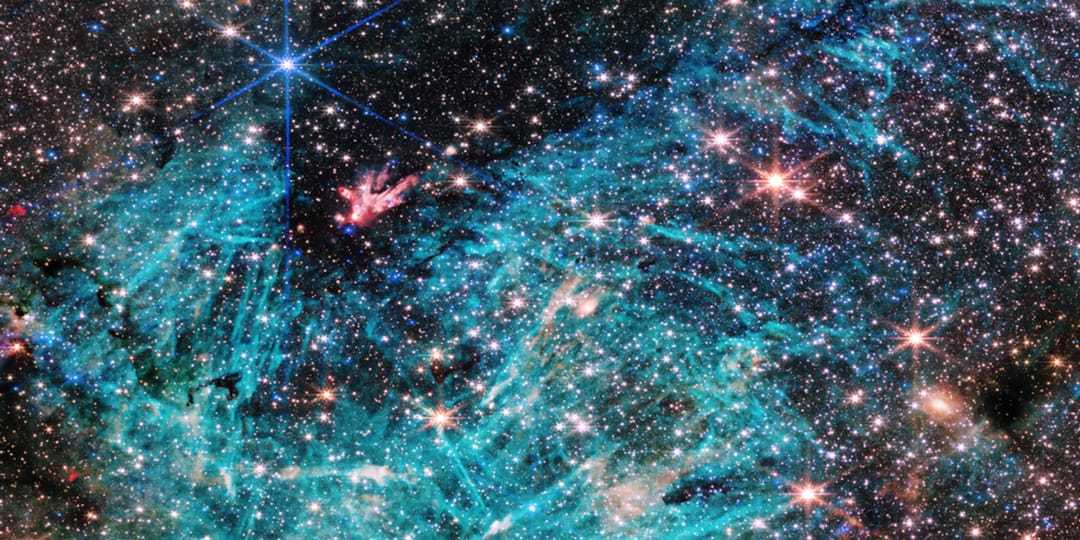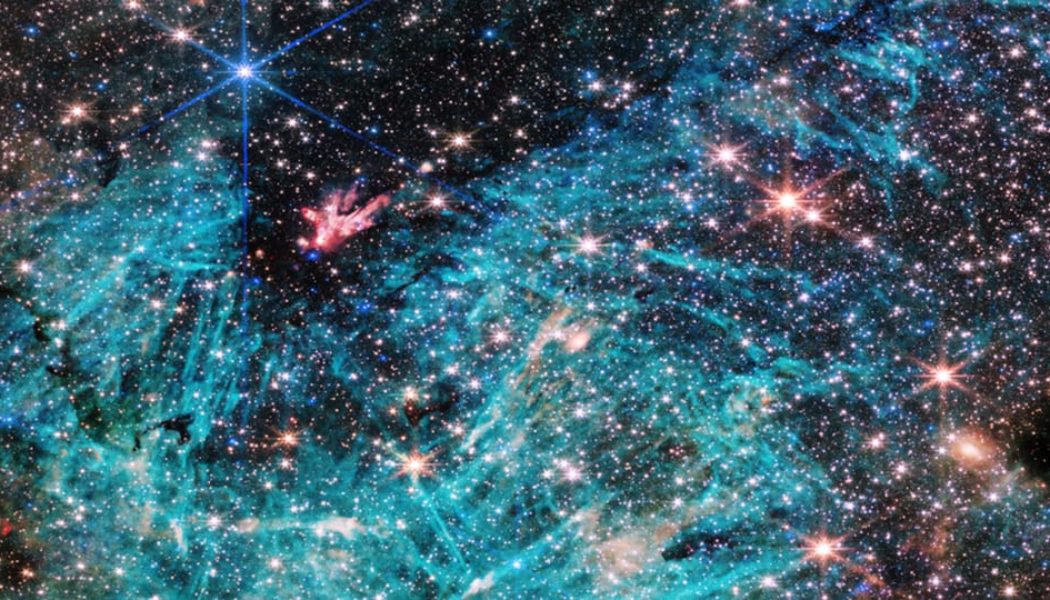
NASA’s James Webb Space Telescope has been used to capture images of asteroid belts, Uranus and even a 20,000-year-old supernova. For its latest project, scientists used the Webb Telescope to look at the heart of the Milky Way.
Specifically, they held the telescope up to the Sagittarius constellation, located at the center of the galaxy. The images produced were described by the space agency as featuring “unprecedented detail,” along with features never before seen by astronomers.
The Webb contains a Near-Infrared Camera (NIRCam), a camera and a sensor capable of detecting infrared radiation at specific wavelengths. Scientists were able to see not only a protostar – which they already knew of – but also a dark cloud surrounded by ionized hydrogen. The hydrogen is the result of young stars’ emissions, though NASA’s scientists are interested in studying its “chaotic” needly-like appearance on the camera.
“The galactic center is a crowded, tumultuous place. There are turbulent, magnetized gas clouds that are forming stars, which then impact the surrounding gas with their outflowing winds, jets, and radiation,” said Rubén Fedriani, one of the project investigators. “Webb has provided us with a ton of data on this extreme environment, and we are just starting to dig into it.”
In other tech news, Tinder unveiled its new “rizz-first design.”









